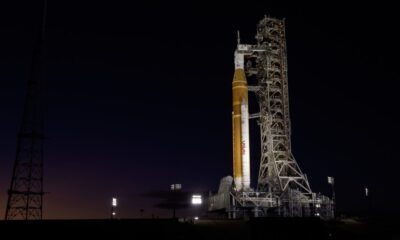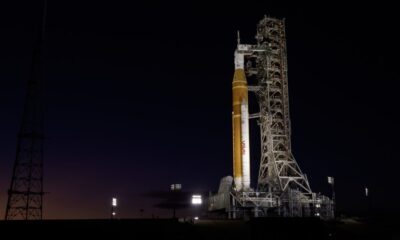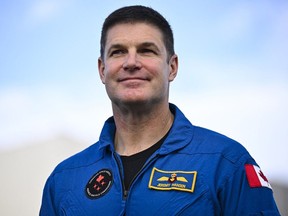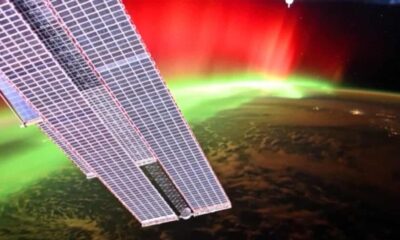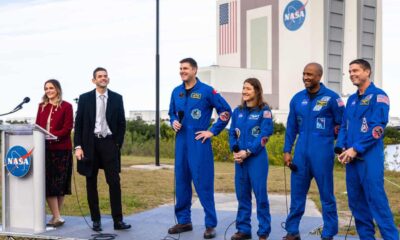Science
Crew-11 Launches to ISS Amid Funding Uncertainty for NASA
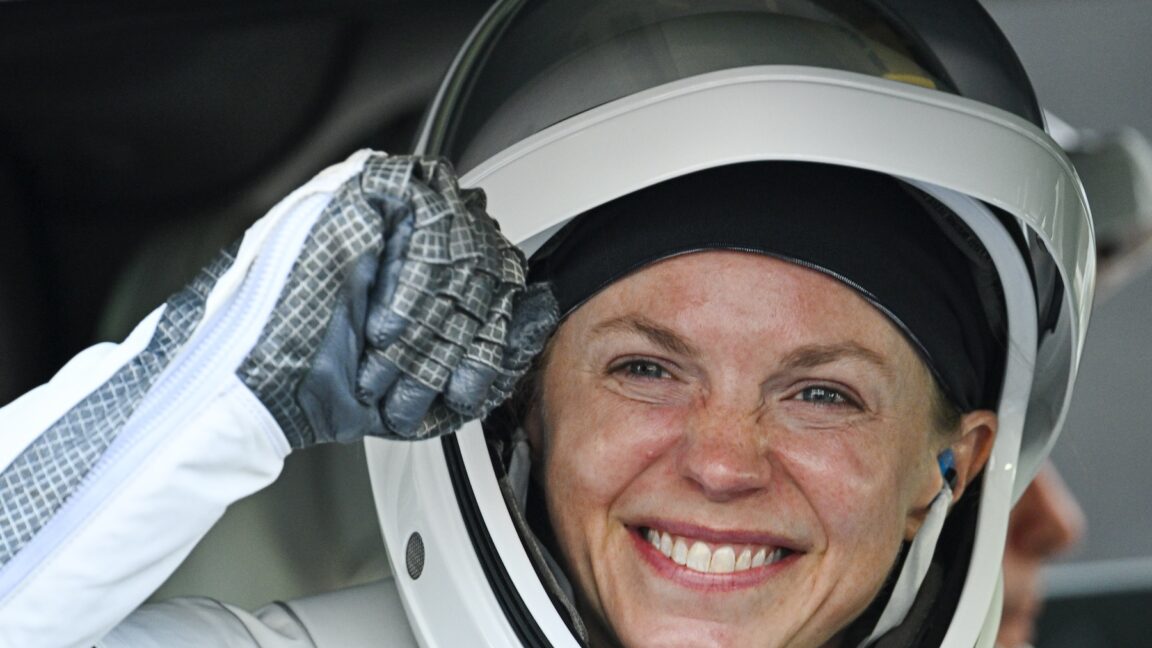
A new team of astronauts has launched to the International Space Station (ISS), embarking on a mission that could see them stay in orbit for up to eight months. The four-person crew departed from NASA’s Kennedy Space Center in Florida on October 6, 2023, at 11:43 am EDT (15:43 UTC). Spacecraft commander Zena Cardman leads the mission, designated Crew-11, alongside veteran NASA astronaut Mike Fincke, mission specialists Kimiya Yui from Japan, and Oleg Platonov from Russia.
The Crew Dragon Endeavour spacecraft lifted off aboard a Falcon 9 rocket, soaring northeast over the Atlantic Ocean towards its destination. The mission is set for an automated docking with the ISS early on October 7.
Successful Launch and Historic Milestones
The launch marks a significant achievement for SpaceX, as the Falcon 9’s first stage booster completed its 53rd and final landing at Landing Zone 1 (LZ-1) at Cape Canaveral Space Force Station. This site will soon be repurposed, as plans are underway to convert LZ-1 into a launch pad for another rocket company. Bill Gerstenmaier, SpaceX’s vice president of build and flight reliability, noted that the transition from LZ-1 to new landing zones will be coordinated with the Cape and Kennedy Space Center teams.
Shortly after liftoff, the Falcon 9’s second stage successfully fired to place the Crew Dragon capsule into low-Earth orbit, completing the 159th consecutive successful launch of the Falcon 9 rocket. “I have no emotions but joy right now,” Cardman exclaimed after reaching orbit. This marks her first journey to space, a milestone she has been preparing for since her selection as a NASA astronaut in 2017.
Fincke, now on his fourth spaceflight, expressed his excitement, saying, “Boy, it’s great to be back in orbit! Thank you to SpaceX and NASA for getting us here.” Yui returns for his second mission, while Platonov, a first-time cosmonaut, previously served as a fighter pilot in the Russian Air Force.
Funding Challenges Impacting Mission Duration
Despite the successful launch, there is uncertainty regarding the duration of Crew-11’s mission. Traditionally, missions may be extended due to technical issues or adverse weather, but this time, financial constraints are also a significant factor. The administration of former President Donald Trump has proposed substantial cuts to NASA’s budget, including a nearly 25 percent reduction for the agency in fiscal year 2026, which begins on October 1, 2026.
This budget proposal would affect the ISS operations directly, potentially limiting crew sizes and reducing research capacity. Steve Stich, NASA’s commercial crew program manager, indicated that engineers are working with SpaceX to ensure the Dragon spacecraft can remain in orbit for at least eight months, despite the current certification limit being set at seven months.
Dana Weigel, NASA’s ISS program manager, confirmed that plans are being made to extend Crew-11’s mission duration. “We are looking at the potential to extend this current flight,” she stated, adding that additional months of work are anticipated.
As Congress deliberates on budget bills that could maintain funding for NASA programs, including the ISS, the outcome remains uncertain. The potential for a government shutdown looms if lawmakers fail to pass an appropriations bill by the deadline. Furthermore, there are concerns that the Trump administration may not allocate the full budget to NASA, a move that would likely face legal challenges.
In light of these challenges, NASA is exploring options to minimize costs. This could include launching fewer crew members on future missions, such as sending only three astronauts on Crew-12, scheduled for early next year. Weigel emphasized that while immediate plans appear stable, adjustments may be necessary based on the final budget outcomes.
As Crew-11 embarks on its journey, the implications of funding cuts and operational adjustments will shape the future of NASA’s crewed missions and the ongoing legacy of the ISS.
-

 Politics3 months ago
Politics3 months agoSecwepemc First Nation Seeks Aboriginal Title Over Kamloops Area
-

 World7 months ago
World7 months agoScientists Unearth Ancient Antarctic Ice to Unlock Climate Secrets
-

 Top Stories1 month ago
Top Stories1 month agoUrgent Fire Erupts at Salvation Army on Christmas Evening
-

 Sports1 month ago
Sports1 month agoCanadian Curler E.J. Harnden Announces Retirement from Competition
-

 Lifestyle5 months ago
Lifestyle5 months agoManitoba’s Burger Champion Shines Again Amid Dining Innovations
-

 Top Stories2 months ago
Top Stories2 months agoFatal Crash on Highway 11 Claims Three Lives, Major Closure Ongoing
-

 Entertainment7 months ago
Entertainment7 months agoTrump and McCormick to Announce $70 Billion Energy Investments
-

 Science7 months ago
Science7 months agoFour Astronauts Return to Earth After International Space Station Mission
-

 Lifestyle7 months ago
Lifestyle7 months agoTransLink Launches Food Truck Program to Boost Revenue in Vancouver
-

 Technology5 months ago
Technology5 months agoApple Notes Enhances Functionality with Markdown Support in macOS 26
-

 Top Stories1 month ago
Top Stories1 month agoBlue Jays Sign Kazuma Okamoto: Impact on Bo Bichette’s Future
-

 Top Stories2 months ago
Top Stories2 months agoNHL Teams Inquire About Marc-André Fleury’s Potential Return

